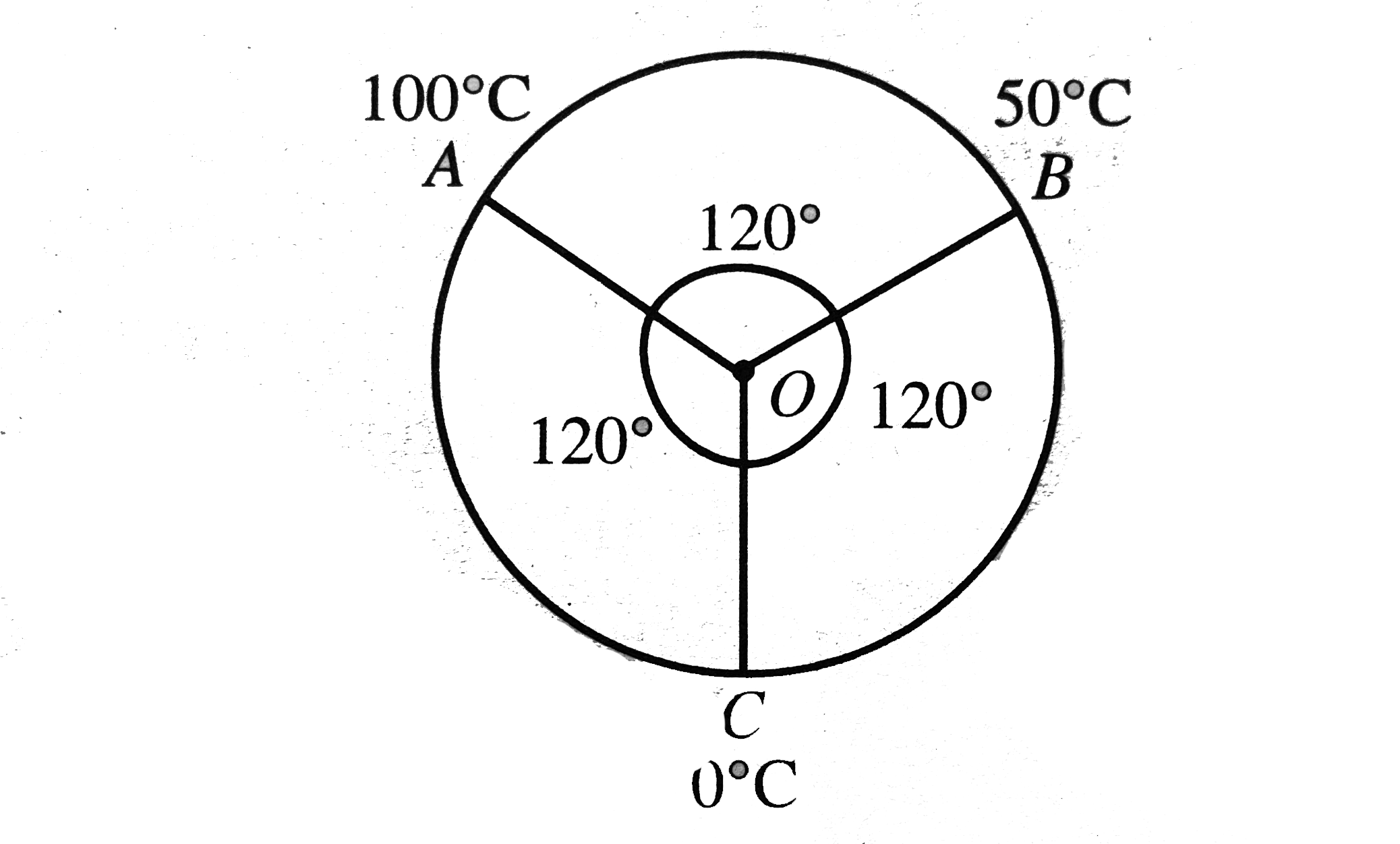
A circular ring (centre O) of radius a, and of uniform cross section is made up of three different metallic rods AB, BC and CA (joined together at the points A, B and C in pairs) of thermal conductivityies α1,α2 and α3 respectively (see diagram). The junction A, B and C are maintained at the temperatures 100∘C,50∘C and 0∘C, respectively. All the rods are of equal lengths and cross sections. Under steady state conditions, assume that no heat is lost from the sides of the rods. Let Q1,Q2 and Q3 be the rates of transmission of heat along the three rods AB, BC and CA. Then
Q1=Q2=Q3 and all are transmitted in the clockwise sense
Q1 and Q2 flow in clockwise sense and Q3 in the anticlockwise sense.
Q1:Q2:Q3::α1:α2:2α3
Q1α1+Q2α2=Q3α3
The correct Answer is:B, C, D
The flow of heat will always be in the direction of the temperature gradient from higher to lower temperature Hence Q1 in rod AB, Q2 in rod BC will both be in clockwise sense while Q3 in CA will be in anti-clockwise sense Also we have if L is the length of each rod and A its area of cross-section
Q1=α1A(100−50)L=(50α1)AL
Q2=α2A(50−0)L=(50α2)AL
Q3=α3A(100−0)L=(100α3)AL
Hence Q1:Q2:Q3::α1:α2:2α3
Also Q1α1+Q2α2=(50AL)+(50AL)=100AL=Q3α3
Topper's Solved these Questions
- CALORIMETRYBook:CENGAGE PHYSICS ENGLISHChapter:CALORIMETRYExercise:Comprehension
Explore 30 Videos
- CALORIMETRYBook:CENGAGE PHYSICS ENGLISHChapter:CALORIMETRYExercise:Integer
Explore 8 Videos
- CALORIMETRYBook:CENGAGE PHYSICS ENGLISHChapter:CALORIMETRYExercise:Single Correct
Explore 148 Videos
- BASIC MATHEMATICSBook:CENGAGE PHYSICS ENGLISHChapter:BASIC MATHEMATICSExercise:Exercise 2.6
Explore 20 Videos
- CENTRE OF MASSBook:CENGAGE PHYSICS ENGLISHChapter:CENTRE OF MASSExercise:INTEGER_TYPE
Explore 1 Video
Similar Questions
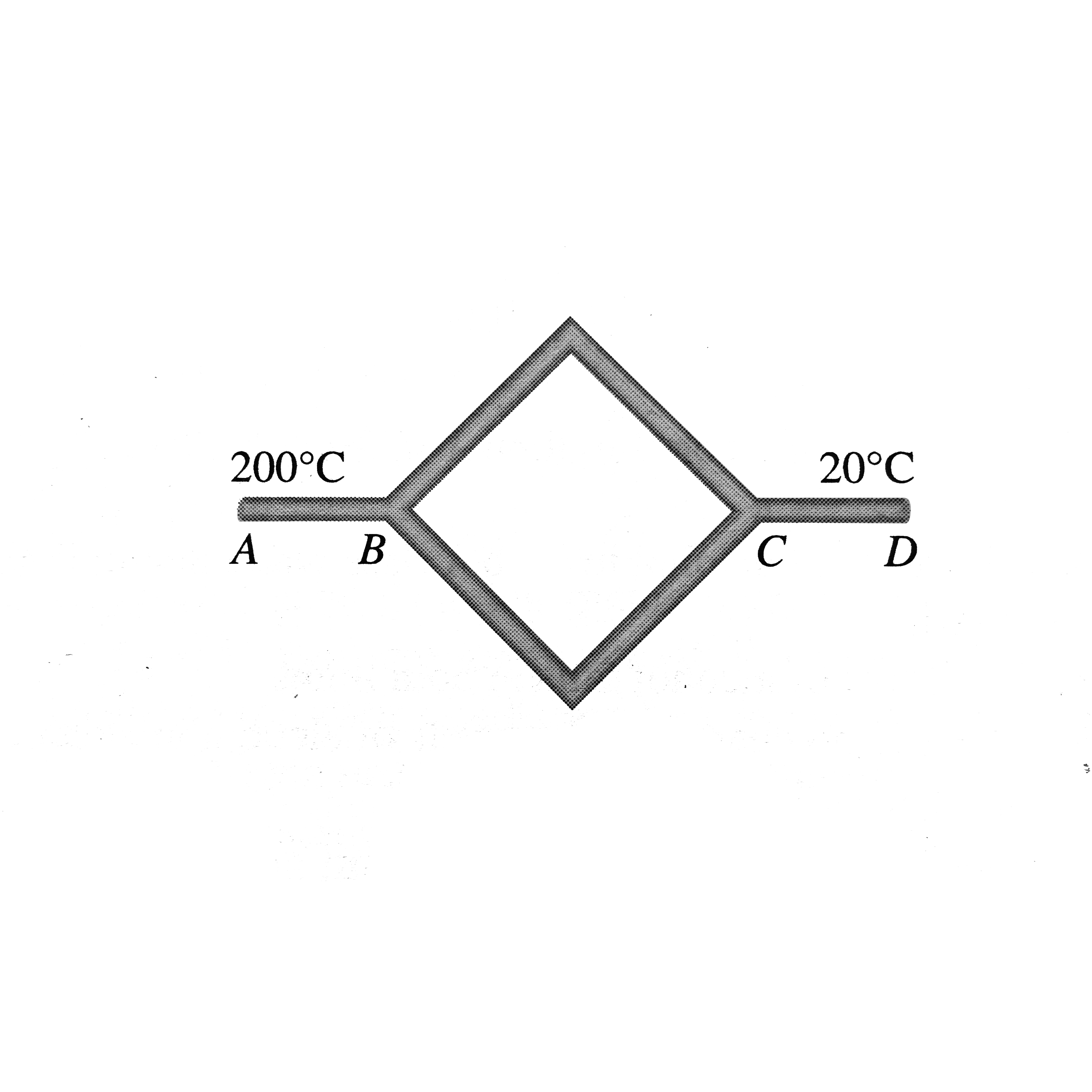
Six identical cunducting rods are joined as shown in Fig. Points A and D are maintained at temperatures 200∘C and 20∘C respectively. The temperature of junction B will be
View Solution
Six identical cunducting rods are joined as shown in Fig. Points A and D are maintained at temperatures 200∘C and 20∘C respectively. The temperature of junction B will be
View Solution
Six identical cunducting rods are joined as shown in Fig. Points A and D are maintained at temperatures 200∘C and 20∘C respectively. The temperature of junction B will be
View SolutionThree rods AB, BC and AC having thermal resistances of 10 units, 10 units and 20 units, respectively, are connected as shown in the figure. Ends A and C are maintained at constant temperatures of 100∘C and 0∘C, respectively. The rate at which the heat is crossing junction B is
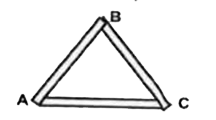
View SolutionTwo ends of a conducting rod of varying cross-section are maintained at 200∘C and 0∘C respectively. In steady state:
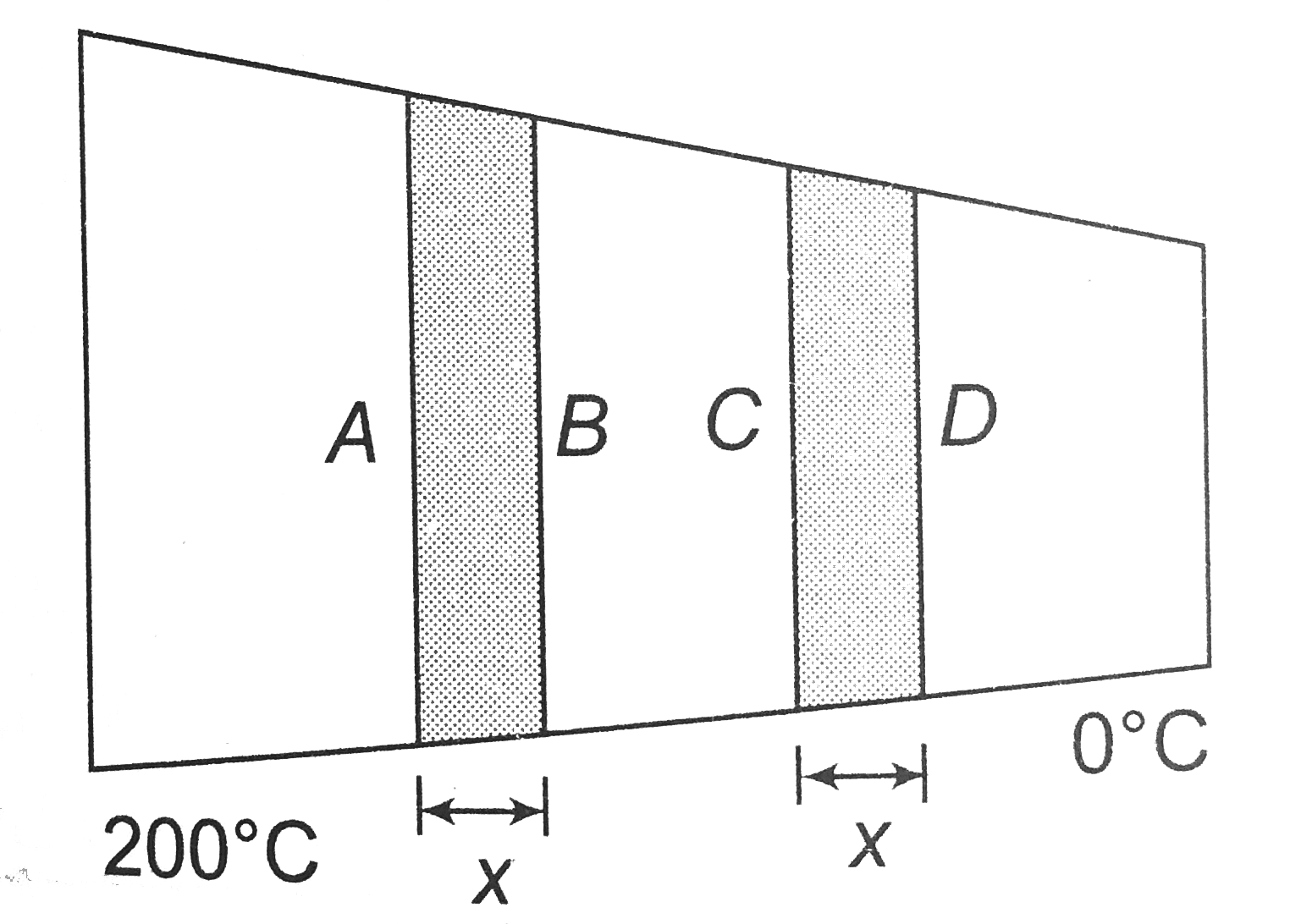
View SolutionFour identical rods AB, CD, CF and DE are joined as shown in figure. The length, cross-sectional area and thermal conductivity of each rod are l, A and K respectively. The ends A, E and F are maintained at temperature T1 , T2 and T3 respectively. Assuming no loss of heat to the atmosphere, find the temperature at B.
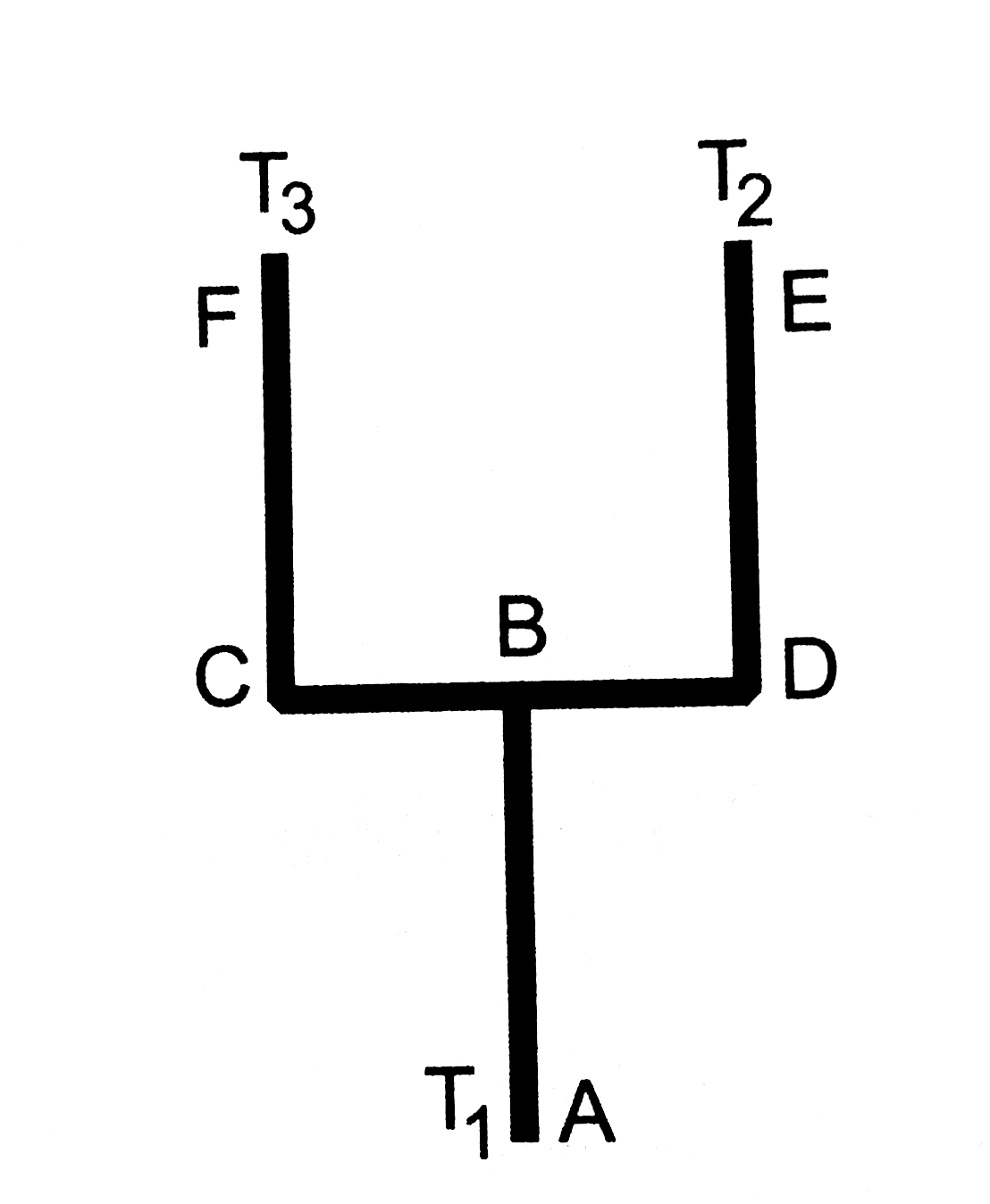
View SolutionFour identical rods AB,CD,CFandDE are joined as shown in figure. The length, cross-sectional area and thermal conductivity of each rod are l,AandK respectively. The ends A,EandF are maintained at temperature T1 , T2 and T3 respectively. Assuming no loss of heat to the atmosphere, find the temperature at B.

View SolutionThree rods each of same length and cross - section are joined in series. The thermal conductivity of the materials are K, 2K and 3K respectively. If one end is kept at 200∘C and the other at 100∘C. What would be the temperature of the junctions in the steady state? Assume that no heat is lost due to radiation from the sides of the rods.
View Solution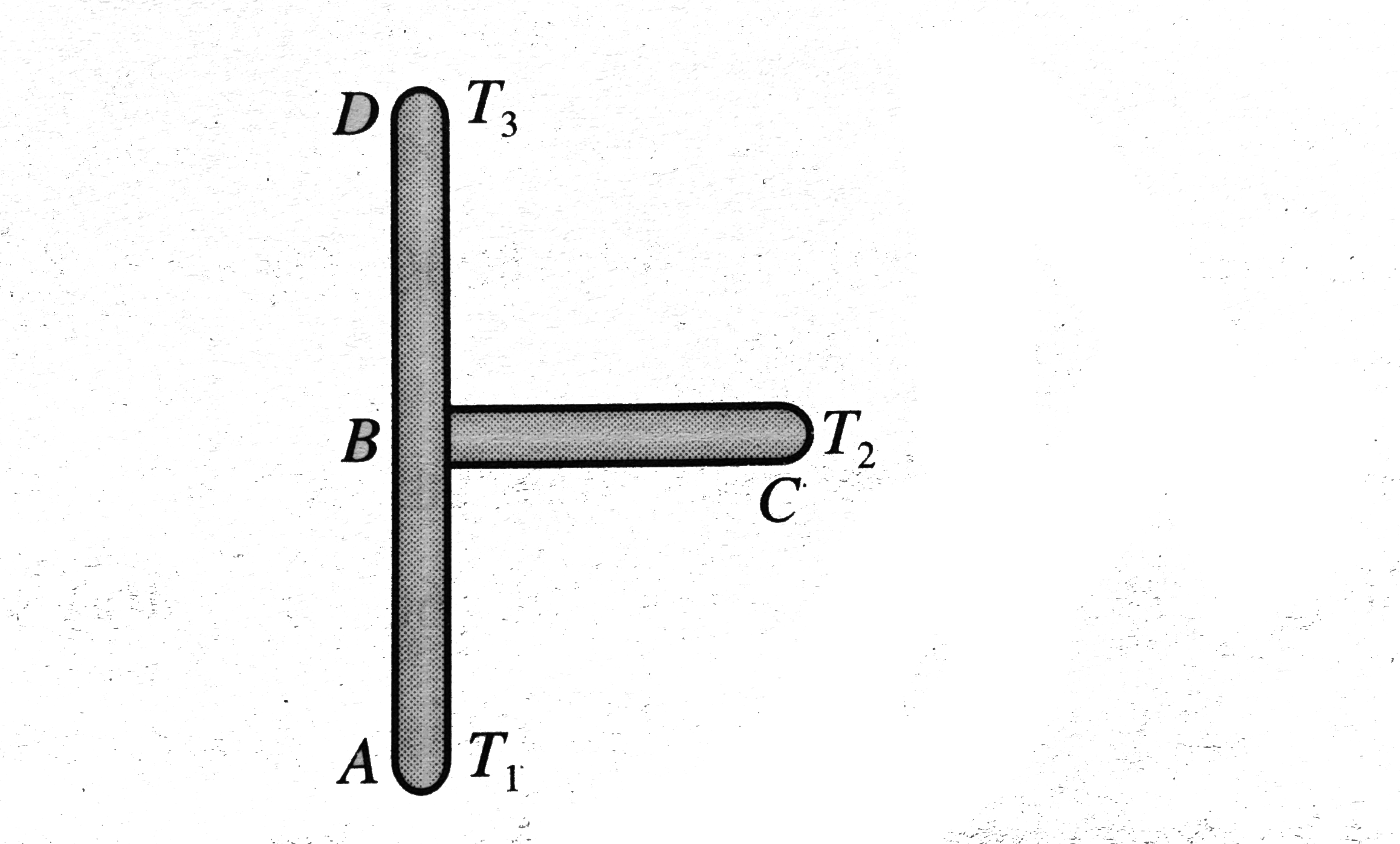
Three rods AB, BC and BD having thermal conductivities in the ratio 1:2:3 and lengths in the ratio 2:1:1 are joined as shown in Fig. The ends A, C and D are at temperature T1,T2 and T3 respectively Find the temperature of the junction B. Assume steady state.
View SolutionThree identical rods AB, CD and PQ are joined as shown. P and Q are mid points of AB and CD respectively. Ends A, B, C and D are maintained at 0∘C, 100∘C, 30∘C and 60∘C respectively. The direction of heat flow in PQ is
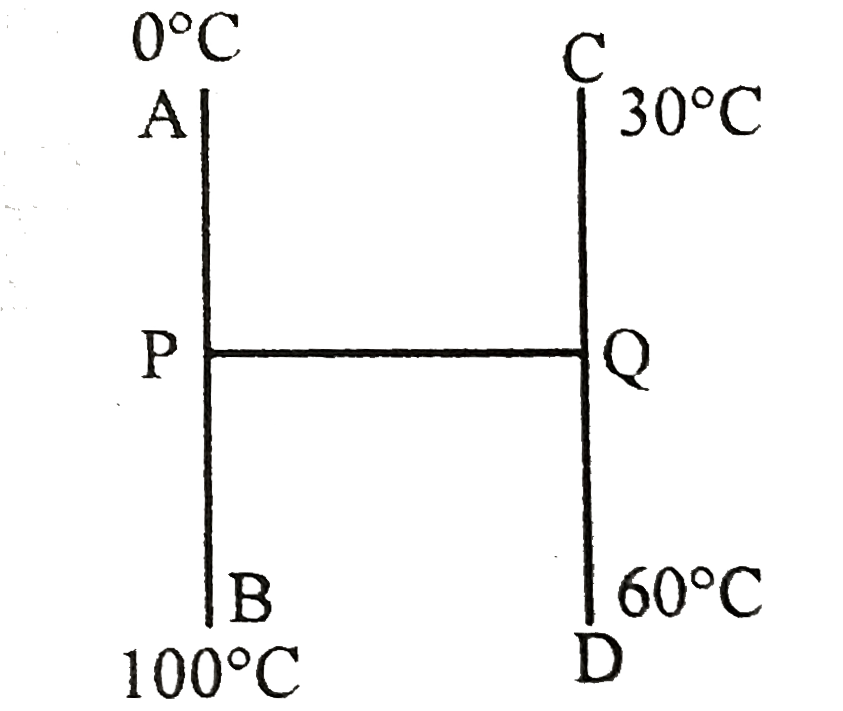
View Solution